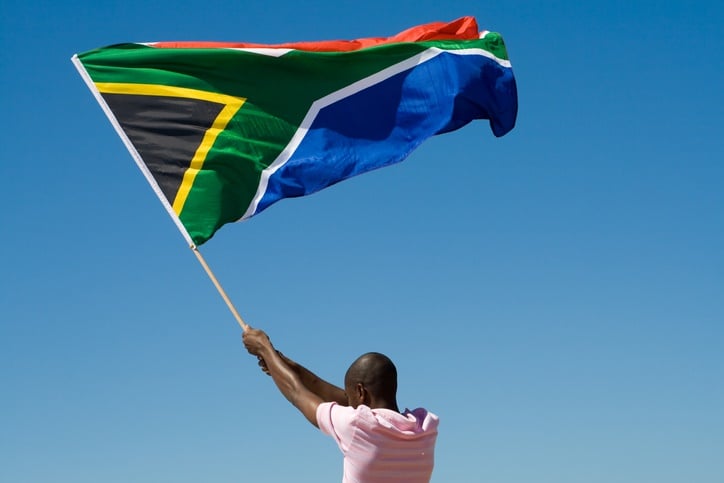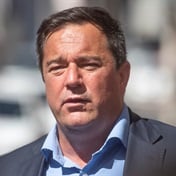
Democracy offers the best political arrangement in a secular and religiously diverse state for recognising and respecting the dignity of human beings - all of whom, according to Christian scripture at least, are made in the image of God, writes Craig Bailie.
South Africa's democratic project has been in trouble for some time. In September last year, with the July unrest still fresh in the national psyche, African Enterprise released a documentary, titled: The Threatened Miracle of South Africa’s Democracy. Among the more recent popular press articles lamenting the sad state of South Africa's affairs are those authored by Stephen Grootes, RaymondSuttner, and Judith February.
One sign of South Africa's troubled democracy and failed governance is the dire state of the country's municipalities. Here, too, several organisations have worked to create awareness, hold authorities to account, and encourage engaged and active citizenship, including the ISS (Institute for Security Studies), OUTA (Organisation Undoing Tax Abuse), and Gift of the Givers.
South Africa's Auditor-General, Tsakani Maluleka, recently presented the consolidated general report on local government audit outcomes. The report reveals that only 16 % of South Africa's municipal entities received clean audits for the financial year 2020/2021. A visual gauge of the financial state of South Africa's municipalities can be found here. The implication of these figures and graphics is that people are suffering. For example, last year, Clover closed its biggest cheese factory in Lichtenburg, North West, due to poor service delivery. The closure resulted in 330 job losses, further aggravating South Africa's high unemployment rate.
The Defend Our Democracy campaign
With the challenges confronting South Africa's democracy and municipalities as a backdrop, individuals from different organisations and professions came together in March 2021 to launch the Defend Our Democracy campaign – an initiative aimed at pushing "back against people insistent on defying the law and the Constitution". In April this year, the campaign launched its national discussion document: "Conference for Democratic Renewal and Change". The purpose of the document was to initiate conversations focusing on: "Reversing the downward spiral of democracy in South Africa; Recovering values; Repurposing politics; Revisiting and reimagining the future of the country; and Re-envisioning political systems and values" – all in preparation for a national conference taking place in Boksburg on Friday and Saturday.
With these objectives in mind, the campaign administration invited members of the public to facilitate countrywide workshops within their respective organisations and communities, on the national discussion document. As someone passionate about seeing people recognise and develop their agency to the fullest potential, and who believes in democracy as the best possible form of political governance for achieving this on a national scale, I volunteered to facilitate three workshops in the Saldanha Bay Municipality – one in each of the municipality's three largest towns: Langebaan, Saldanha and Vredenburg.
I advertised the workshops via social media platforms, on local radio (in the form of a once-off interview), and via targeted email. Furthermore, a leader from one local church in each of the above-mentioned towns announced the Defend Our Democracy Campaign at their respective Sunday church services and invited members of their congregations to attend any of the three workshops.
A critical question
Despite these efforts, the attendance across the workshops was exceedingly low. On average, three people attended every workshop. The workshops were open to all members of the public. However, because my email advertising focused on faith leaders and since at least three church congregations were informed about the workshops in person, the low turnout at the workshops got me questioning again whether the Church in South Africa is doing enough to support democracy. Do Christians in South Africa have enough understanding of, and interest in, democracy to defend it?
Although the experience I share here is limited to a single project in one municipality and, although my concern relates specifically to a perceived lack of activism by a specific faith group, it resonates with Grootes' observation that "SA's people are seemingly giving up on democracy". The potential for growing political radicalism and populism, declining voter participation, and increasing dissatisfaction with democracy are among the factors underpinning his observation. Altogether, these realities encourage my skepticism about Greg Mills' claim that "most South Africans were raised on openness, democracy and freedom, and cherish these ideals".
The Church and democracy in post-apartheid South Africa
Three years after South Africa's first democratic election, Professor John de Gruchy, of the University of Cape Town, wrote: "…today, within a secular democratic society committed to multicultural and religious tolerance, the challenge is to ensure that both Christian faith and theology remain publicly engaged and prophetic." Unfortunately, several scholarly observations made in the following decade suggest the Church in South Africa has largely failed in this regard, or at the very least, has shown mixed results.
In 2011, Professor Tracy Kuperus, of Calvin College in the United States, concluded that "the impact of South Africa's church-based organisations regarding the consolidation of democracy is decidedly mixed". In the following year, Professor Kilppies Kritzinger, of Unisa, wrote: "It is painful to admit that many South African theologians (including the church) have been reluctant to raise their voices publicly on certain issues since 1994." More recently, in 2019, Dr. Karabo Makofane and Professor Nico Botha, also of Unisa, describe the church as having withdrawn from the political arena.
These findings should not discount the good work that some Christian leaders, churches and parachurch organisations have done, and continue to do, in post-apartheid South Africa in support of democratic values and the development of democracy as a form of governance and citizenship. For example, Dr. Michael Louis, who was a founding member of the ACDP in 1993/1994, is one among several individuals leading the fight for South Africa's much-needed electoral reform. Alongside him is ordained pastor, former DA leader, and OneSA's chief activist, Mmusi Maimane.
ALSO READ | Howard Feldman: Load shedding and SA's low morale - How the 'But' and 'And' concept can help us survive
Among the convenors of the Defend Our Democracy Campaign are Reverends Frank Chikane and Moss Nthla. The first, whom many will know as the former director-general in the Presidency during the Mbeki era, has also occupied several leadership positions in the Christian Church, both nationally and globally. The second is the general-secretary of the Evangelical Association of South Africa (TEASA) and the chairperson of the South African Christian Leadership Initiative (SACLI). And how could one neglect to mention the two straight-talking Anglican Archbishops of Cape Town, Dr. Thabo Makgoba, and one of his better-known predecessors, the late Desmond Tutu?
For the Church to add the kind of value to South Africa's democracy that it can, it will require more than just a few "star players", however, as the entire "team" must be involved. It will require "all hands on deck". In other words, every Christian must do what he or she can to support the development and consolidation of democracy in South Africa. Seeking to continually adopt and live out a biblical worldview and understand how democracy and good governance fit into such a worldview is an essential start. Among the Christian-based initiatives and organisations that are making a valuable contribution to South Africa's democracy in this regard are the Every Nation School of African Reformation in Makhanda (formerly Grahamstown) and the Africa School of Governance in Cape Town.
Why the question is an important one
The question of whether the Church in South Africa is doing enough to support democracy is a pertinent one for three reasons. Firstly, and theologically speaking, Christians should be among the strongest proponents of this form of government. This is not because the democratic model is explicitly prescribed in Christian scripture, but because Christian scripture, when read in its entirety and contextually, lends strong support for a democratic form of governance. For more on the positive relationship between Christianity and democracy, I recommend readers consider the written work made available here, here, and here. Those who are pressed for time, however, should prioritise reading De Gruchy's 1997 journal article, Christianity and Democracy: Understanding their Relationship.
Secondly, according to South Africa's General Household Survey of 2015, 86% of the country's population professes to be Christian, meaning the potential for the development of democracy is considerable. Even if, according to research conducted by Professor Nicola de Jager of Stellenbosch University, 50% of those who profess to be Christian still engage in ancestral veneration – meaning, they adopt a mix of Christian belief and traditional African worldview, and as a result, are less likely to adopt democratic values – a substantial portion of the professing Christian population that should, in theory, be open to supporting democracy and pursuing democratic development remains. Although being a minority, if this remaining group were to be serious about living out its faith and adopting the sincere interest in and support for democracy that I am advocating for, things can only get better in South Africa.
ALSO READ | Melanie Verwoerd: A woman died on the pavement in my neighbourhood last week
Thirdly, and as the Defend Our Democracy Campaign national discussion document makes clear, South Africa's democracy is in trouble. This is so, even though a strong case exists for Christian support for democracy and a significant percentage of the South African population is Christian. A South African Council of Churches (SACC) report of 2017 reads: "What is patently clear is that South Africa is in desperate need of divine intervention!" Since God works through His creations, the question presently confronting Christians in South Africa's ongoing crisis is whether we are willing to allow the Divine to intervene through us. This question is significant, not because democracy will usher in the kingdom of God, but because democracy offers the best political arrangement in a secular and religiously diverse state, for recognising and respecting the dignity of human beings all of whom, according to Christian scripture at least, are made in the image of God.
In the words of American theologian Reinhold Niebuhr, "the profundities of the Christian faith…are indispensable resources for the historic tasks which lie before us". And, in the words of De Gruchy and Bellah et al, "democracy is…an 'ongoing moral quest' whose success is contingent upon the development of people able to participate fully in the body politic, and therefore of institutions which allow and foster such participation". If all this is true, local churches across South Africa (including those in the Saldanha Bay Municipality) must ask themselves whether they are willing to be counted among such people and such institutions.
- Craig Bailie is the Founding Director of Bailie Leadership Consultancy. He writes in his personal capacity.
To receive Opinions Weekly, sign up for the newsletter here.
*Want to respond to the columnist? Send your letter or article to opinions@news24.com with your name and town or province. You are welcome to also send a profile picture. We encourage a diversity of voices and views in our readers' submissions and reserve the right not to publish any and all submissions received.
Disclaimer: News24 encourages freedom of speech and the expression of diverse views. The views of columnists published on News24 are therefore their own and do not necessarily represent the views of News24.




 Publications
Publications
 Partners
Partners























